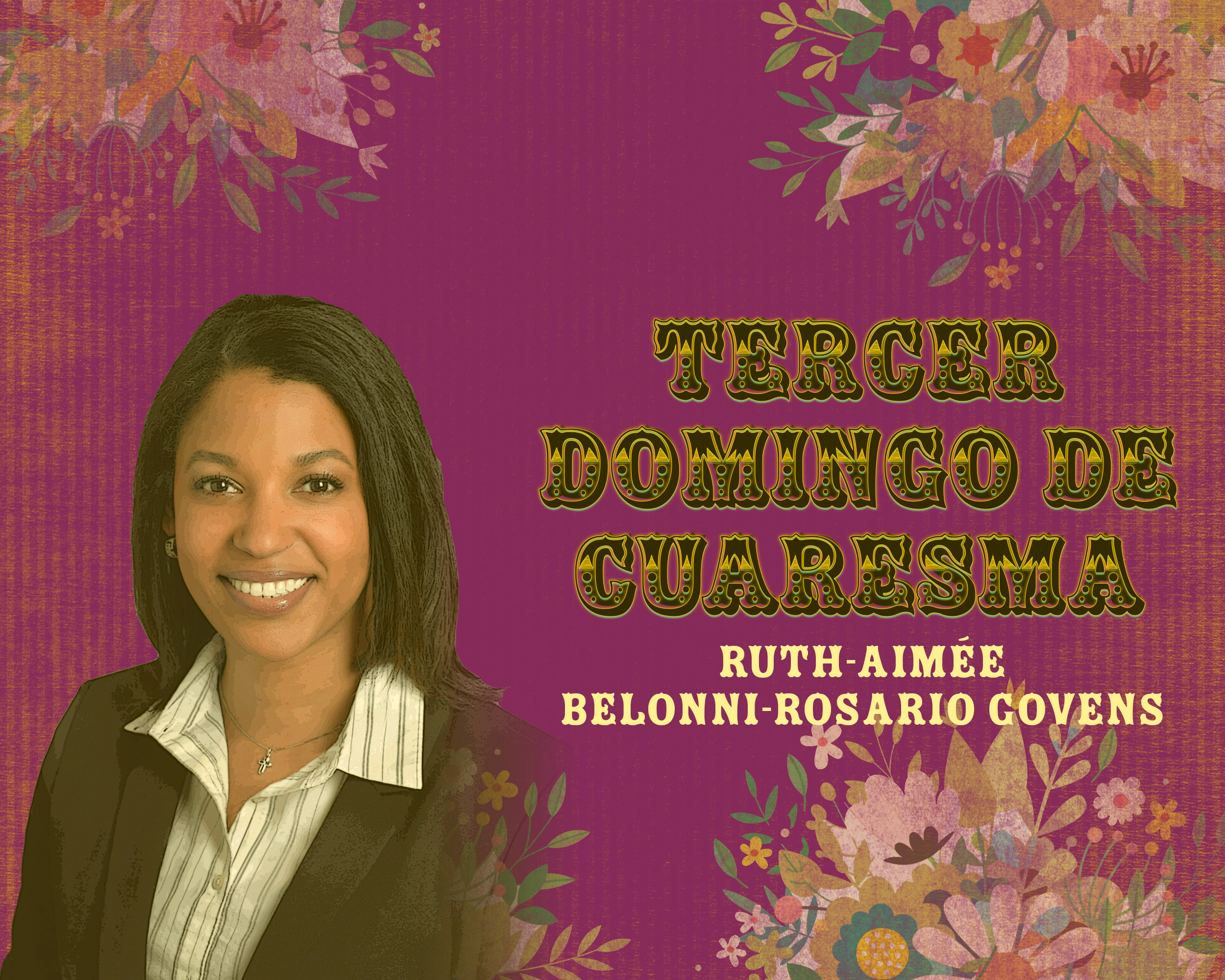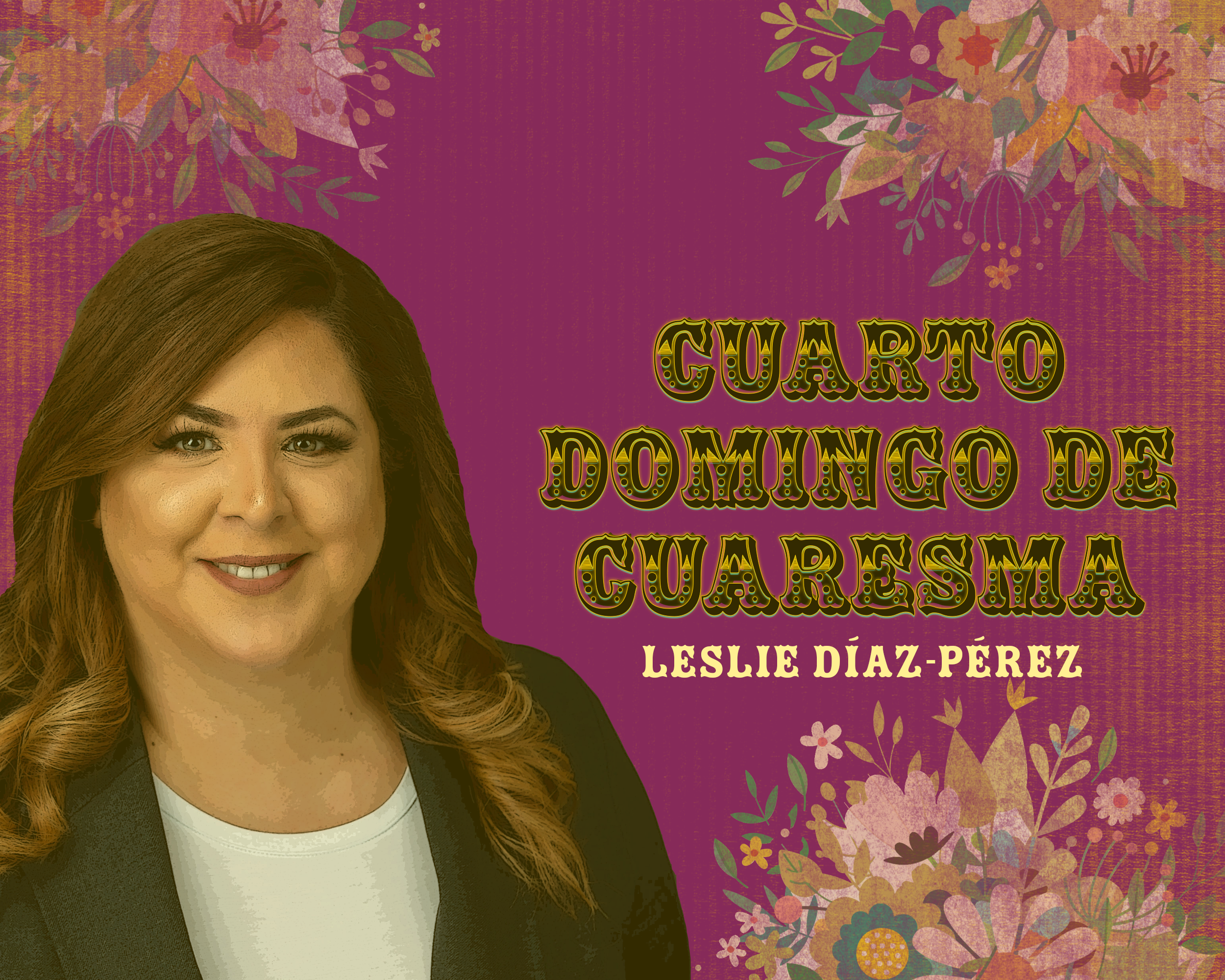Joshua 5:9-12; Psalm 32; 2 Corinthians 5:16-21; Luke 15:1-3, 11b-32
It is interesting to see what incites people. Thanks to the internet, we can get a glimpse of what gets attention and takes up space on the web. A few days ago, social media overflowed with the news of a reggaeton artist who left his fans in shock when, instead of performing his famous hits glorifying a life of drugs and parties, he began to talk about God and his repentance. Some fans were disgusted with the whole scene and chose to leave the concert. Confused, others stayed at the concert to see what really was going on. Even those who did not attend the concert or previously even heard of the artist offered their opinions on the matter on social media. Among the comments I read, one particularly caught my attention with the phrase, “con todo y sin nada” (with everything and yet with nothing).
At his concert, the reggaeton singer witnessed to the audience by listing all the material things, earnings, and relationships he had at his disposal. He told them how he had been in the business since the age of 15 and had seen a lot, experienced everything, and yet he felt empty. To him, he had it all, yet he was left with nothing. In other words, all he was left with was an emptiness that for a long time he tried to fill with a great number of things. Regretting the damage of his influence, the singer apologized profusely about the lyrics of his famous song and proclaimed that only God could fill the void in his life.
Even if we approach this story with a certain level of suspicion, today’s bible readings ask us to approach it with expectation… expectation of what God can do. Today’s readings invite us to recognize the possibilities available for those who have experienced redemption—freedom from reproach—through God’s intervention in their lives. All four Scripture readings mention celebration, rejoicing and new opportunities. God removes shame, forgives transgressions, and makes all things new. Luke 15:11-32 presents all these elements in a single story. Jesus, through the parable of the prodigal son, demonstrates the words of the psalmist David, “Blessed is he whose transgression is forgiven, and whose sin is covered” (Psalm 32:1).
The parable of the found son could perfectly conclude with the father’s happy expression in verse 24, “For this my son was dead, and is alive again; he was lost, and is found. And they began to rejoice.” However, the story does not close without first adding a bit of family drama. The older brother is angry when he learns that his father threw a tremendous party for the son who squandered the inheritance on prostitutes and pleasures. With folded arms and furrowed brows, he refuses to celebrate and receive his brother. And just like that, the parable shifts and emphasizes why Jesus shares it. The older brother represents those who live “con todo y sin nada” (with everything and yet with nothing).
Today’s devotional includes more than a look at the parable of the found son. I invite you to look again at the older brother’s response. I invite you not to judge him too harshly for his backtalk and tantrum at the sight of his brother’s celebration. I have a strong suspicion that at some point in our lives we have been there too. We have been the older sibling. See, it is easy to identify with the found child. But if we truly reflect and search our hearts, often, we find ourselves in the shoes of the older brother. We see the celebration of those who, in our eyes, do not deserve it and, in our arrogance, we become irritated.
“Then he became angry and refused to go in. His father came out and began to plead with him” (v. 28). We get upset when they do not see and reward our “faithfulness.” “But he answered his father, ‘Listen! For all these years I have been working like a slave for you, and I have never disobeyed your command; yet you have never given me even a young goat so that I might celebrate with my friends. But when this son of yours came back, who has devoured your property with prostitutes, you killed the fatted calf for him!’” (vv. 29-30). We call ourselves faithful and embrace the Christian faith, but we do not live with a daughter mentality. “Then the father said to him, ‘Son, you are always with me, and all that is mine is yours” (v. 31). In fact, I would venture to say that it took the celebration of the younger brother for us to realize that the young prodigal was not the only one dead and in need of revival and lost and in need to be found. As older siblings, with a “con todo y sin nada” (with everything and yet with nothing) attitude, we need redemption and in need to joyfully accept the invitation to the celebration.
Prayer:
God of grace and mercy, thank you for your infinite love. You are the God who removes shame. You are the One who forgives our transgressions. In the sacrifice of your Son Jesus Christ, you make all things new. We come to you with repented hearts. We place before you our older sibling attitudes. Forgive our arrogance. Forgive our false faithfulness. We ask you to restore our relationship with you. Our testimony will be that you forgave all our sins and now we are a new creation because there is reconciliation through the sacrifice of your son, Jesus, in whose name we pray. Amen.

Dr. Leslie Diaz-Perez is a native of Puerto Rico. She lives out her passion by serving through teaching. As an educator, she has worked as a special education teacher for over two decades. She is currently the Director of “El Centro”, the Latinx Center at McCormick Theological Seminary, and supports students and leaders in their theological training.



Unbound Social